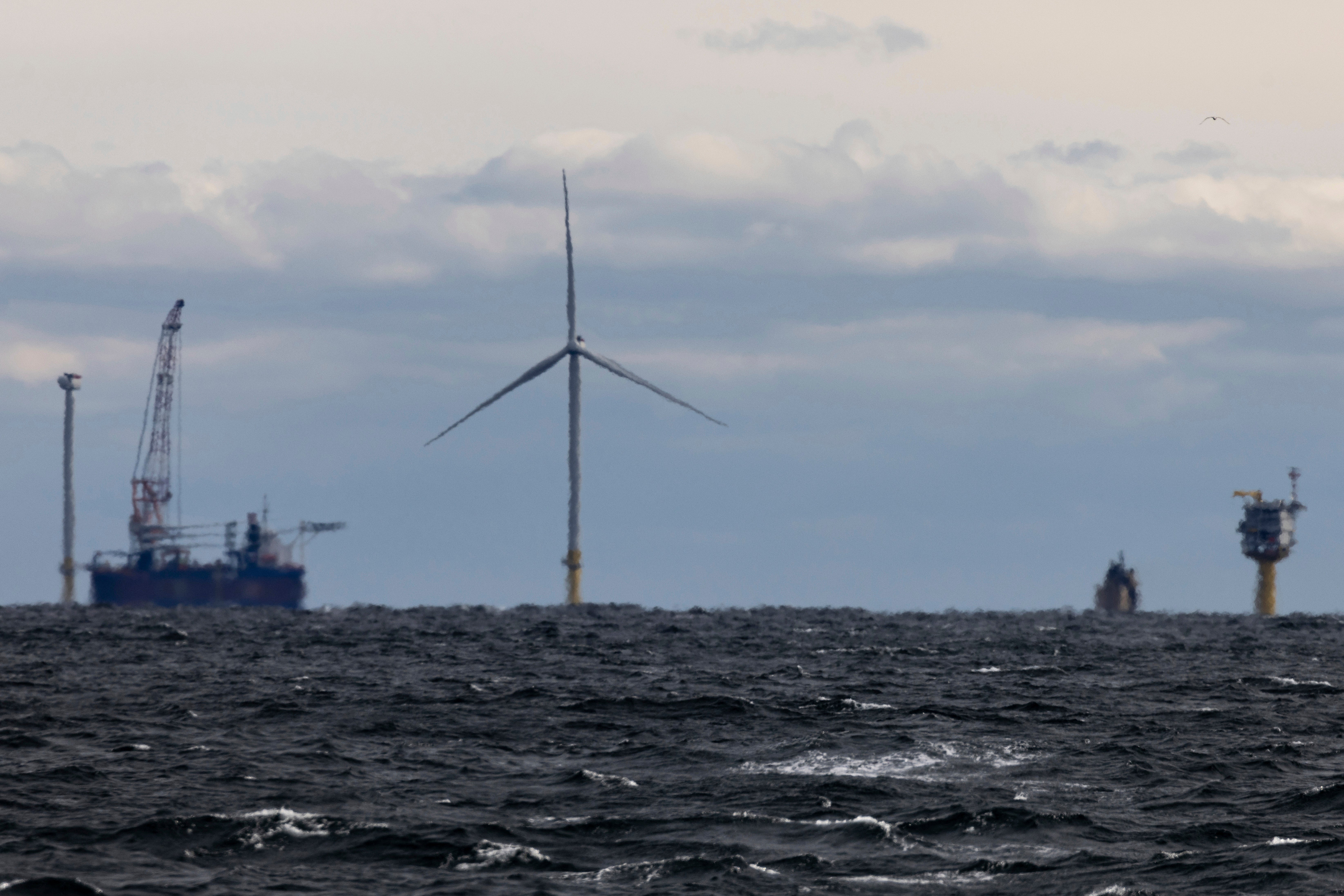US chooses winning bids in first commercial sale for floating offshore Atlantic wind
The U.S. government has chosen winning bids to develop wind power off New England in the first commercial sale for floating offshore wind on the Atlantic coast

The U.S. government chose winning bids Tuesday to develop wind power off New England in the first commercial sale for floating offshore wind on the Atlantic coast.
The Bureau of Ocean Energy Management held a lease sale and selected nearly $22 million in winning bids for four lease areas from two firms. The sale is a major step toward accelerating President Joe Biden's goal of dramatically expanding offshore wind energy capacity by 2030.
Environmentalists praised the lease sale, though commercial fishermen who have questioned the expansion of offshore wind said they remain opposed. The lease areas are in the Gulf of Maine, which is a critical fishing ground for the U.S. lobster industry.
The awarding of the leases is “a critical step in our fight against climate change,” said U.S. Interior Secretary Deb Haaland.
"Together, we can create good paying jobs, build a domestic supply chain, and ensure that the momentum of this offshore industry continues for generations to come," Haaland said in a statement.
Two of the leases went to Avangrid Renewables for areas about 35 miles (55 kilometers) from Massachusetts. The other two leases went to Invenergy NE Offshore Wind for areas about 25 miles (40 kilometers) from Massachusetts. The four areas combined are more than 625 square miles (1,600 square kilometers).
The leased areas have the potential to power more than 2.3 million homes, the Interior Department said in a statement.
Avangrid said in a statement that the leased areas will enable the company to progress floating wind technology. The next generation of offshore wind development is increasingly taking place in deep waters, the company said.
Avangrid is a joint owner, along with Copenhagen Infrastructure Partners, of the Vineyard Wind project, a 62-turbine wind farm under construction 15 miles (24 kilometers) off the coast of Massachusetts.
“Securing these lease areas provides a unique opportunity to advance our growing business at a significant value, and reinforces our unwavering commitment to helping the New England region meet its growing need for reliable, clean energy," Avangrid CEO Pedro Azagra said in a statement.
The Bureau of Ocean Energy Management had planned a floating offshore wind sale off Oregon for this month, but it was postponed amid lack of bidder interest and opposition by the governor.
The Maine Lobstermen's Association, a major commercial fishing trade group that has pushed back against expanding offshore wind power, characterized the lease sale as “another dangerous step toward the industrialization of one of the world's most productive marine ecosystems.”
The association said no part of the Gulf of Maine is appropriate for offshore wind. But conservation Law Foundation and other environmental and renewable energy groups said expanded wind power off New England is critical in the era of climate change.
“The Gulf of Maine lease sale is a pivotal step in our clean energy transition and for the region to significantly reduce climate-damaging emissions,” said Kate Sinding Daly, senior vice president for law and policy at Conservation Law Foundation.
___
Associated Press writer Jennifer McDermott contributed to this report.
Bookmark popover
Removed from bookmarks